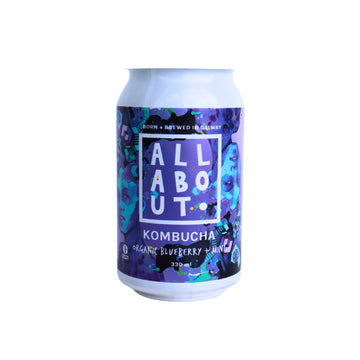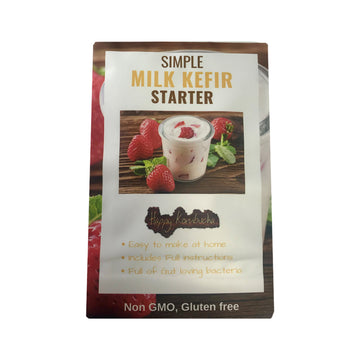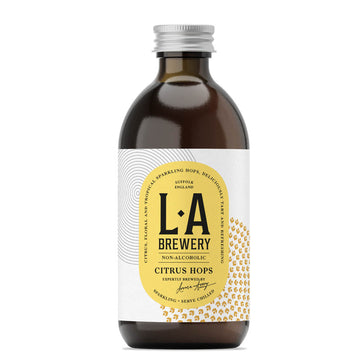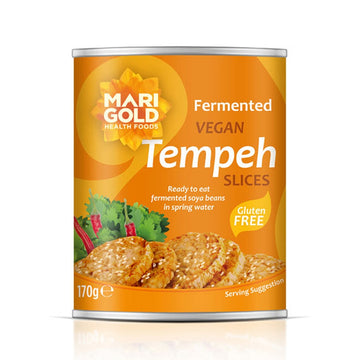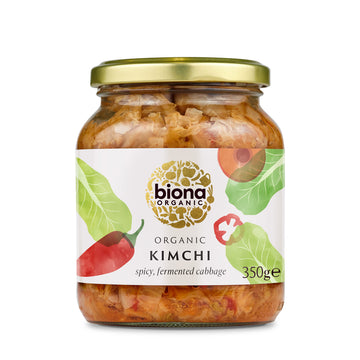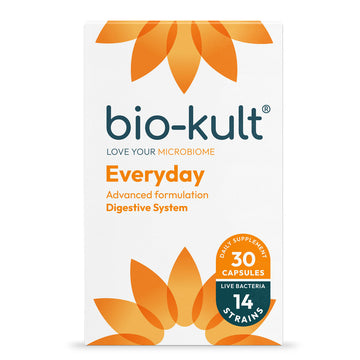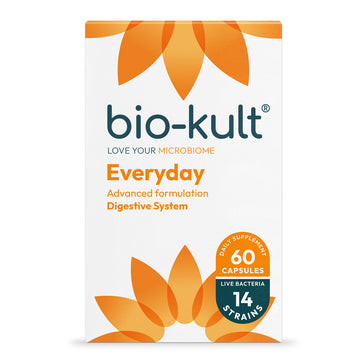Today we're zoning in on probiotics and gut health. The gut is the centre of our bodies. Now we’re also starting to think that it might be at the centre of our health too. There are increasing numbers of people visiting their doctors to complain about digestive problems. These can be anything from constipation, diarrhea, bloating and cramping to IBS (Irritable Bowel Syndrome). Looking after your gut is key. So just what can you do? We're going to take a look at what's best for a healthy gut as well as probiotics and gut health - what probiotics can do for you.
What is the gut responsible for?
The Greek philosopher Hippocrates wrote 2000 years ago ‘all disease begins in the gut’. The gut is far from being just an organ that simply digests food and excretes the waste. It also produces more than 20 kinds of hormone, contains more than a thousand species of bacteria and is controlled by its own nervous system.
Research is starting to point us in the direction that an unhealthy gut can contribute to a wide range of diseases. These include:
- obesity
- diabetes
- autoimmune disorders
- hormonal imbalances
- chronic fatigue
- joint problems
- heart problems
The Food Factor
Food is not only a provider of calories, it is one of the most complex substances that enters your body and it does this many times a day. The food choices you make on a daily and hourly basis can affect your whole being.
We can all make simple changes to our dietary habits. For instance, make sure we digest food thoroughly and properly by good chewing and identify what foods are causing problems and eliminate or reduce them. Read more about the best food choices for your gut.
Friendly Bacteria
Our friendly bacteria have been living with us all of our lives. In fact, there are more bacteria cells in our bodies than our own cells. The beneficial ones play a very important role, maintaining health by keeping the immune system on a low-level alert and therefore supporting its function.
In some studies, when babies do not develop this layer of good bacteria properly, they are more likely to develop an allergy. They may also have an immune system that doesn’t work effectively when there is a real infection.
Probiotics and Gut Health
What we put into our gut can affect our immune system. The best and safest way to address this if you are experiencing problems in this area, is to take probiotic rich foods and/or a high-strength daily probiotic with carefully selected and well-researched bacterial strains. Probiotics and gut health go hand in hand.
A probiotic is a microorganism which naturally occurs in cultured foods and dietary supplements, that can benefit you and your gut. They contain probiotic cultures of yeast or bacteria.
A healthy balance of bacteria helps us to prevent harmful bacteria (as in food poisoning) or yeasts like candida albicans. They may become more predominant after antibiotic use. Taking probiotics can help to restore the balance and are essential when taking antibiotics. They will reduce gut symptoms and help to reduce the chance of the bad bugs becoming resistant to the antibiotic used.
Probiotic Foods
What are Antibiotics?
Antibiotics are a vital medical treatment. As they're regularly used as a treatment for illnesses, there is a concern that the main antibiotics prescribed are going to be ineffective due to antibiotic resistance. Another issue is that when we take them, we often radically disrupt our vital gut ecosystem of bacteria. The consequences can be huge gut disruption, causing diarrhoea, dysbiosis (an imbalance of gut bacteria), pain, bloating, allergies and even our own resistance to antibiotics, resulting in potentially less efficacy the next time we need them.
What can you do if you do have to take antibiotics?
There’s a simple solution if you do have to take antibiotics. Probiotics contain large numbers of the human bacteria that are supposed to live in your gut and can help to restore the disrupted balance. Contrary to popular belief, you can take probiotic supplements while you are taking a course of antibiotics as long as you don’t take them at exactly the same time and, in fact they do help. They will reduce symptoms like diarrhoea and, when you continue to take them after your course of antibiotics, they help to get the balance of bacteria in the gut back to normal.
Things to think about when choosing Probiotics for Gut Health
When choosing a suitable probiotic supplement, these are the key questions to ask:
- Have they been designed and used by experts?
- Are the right types of bacteria being used in the right quantities?
- Are the bacteria safe to use with everyone?
- Will they be stable in the gut?
- Are they pure?
LAB4 Probiotics
But which bacteria help, in what quantities and how do you choose between all of those probiotic companies who claim they can help you when you take antibiotics? Some of the best studies on probiotics and antibiotics involve the LAB4 combination of bacteria - two strains of Lactobacillus acidophilus, one Bifidobacterium animalis subsp. lactis and a Bifidobacterium bifidum. Four specially selected bacteria that are so effective, they really can make a difference.
- One study showed that LAB4 helps to maintain the balance of microflora during antibiotic use and inhibits the overgrowth of ‘bad’ bacteria.
- Another LAB4 study found that supplementation significantly reduced incidence and total numbers of antibiotic resistant strains after antibiotic therapy (by more than 70%). It also inhibited opportunistic fungal overgrowths like Candida, which often causes thrush.
- In another study, elderly hospital patients requiring antibiotic therapy for C. difficile infection had significantly reduced diarrhoea.
Where can I get LAB4 probiotics?
LAB4 blend of probiotics can be found in a number of different branded products around the world including ProVen Probiotics and BioCare. If you would like any assistance or advice when it comes to probiotics and gut health, please feel free to chat to us in any of our eight Evergreen stores. Shop our huge range of Probiotics here.
Please note, this blog is for informational purposes only and should not replace medical advice.
It’s always best to consult your doctor before taking any new supplements, treatments or remedies if you are pregnant, breastfeeding or on medication.
Written by Olivia Beck. Checked and updated: 4 August 2021



